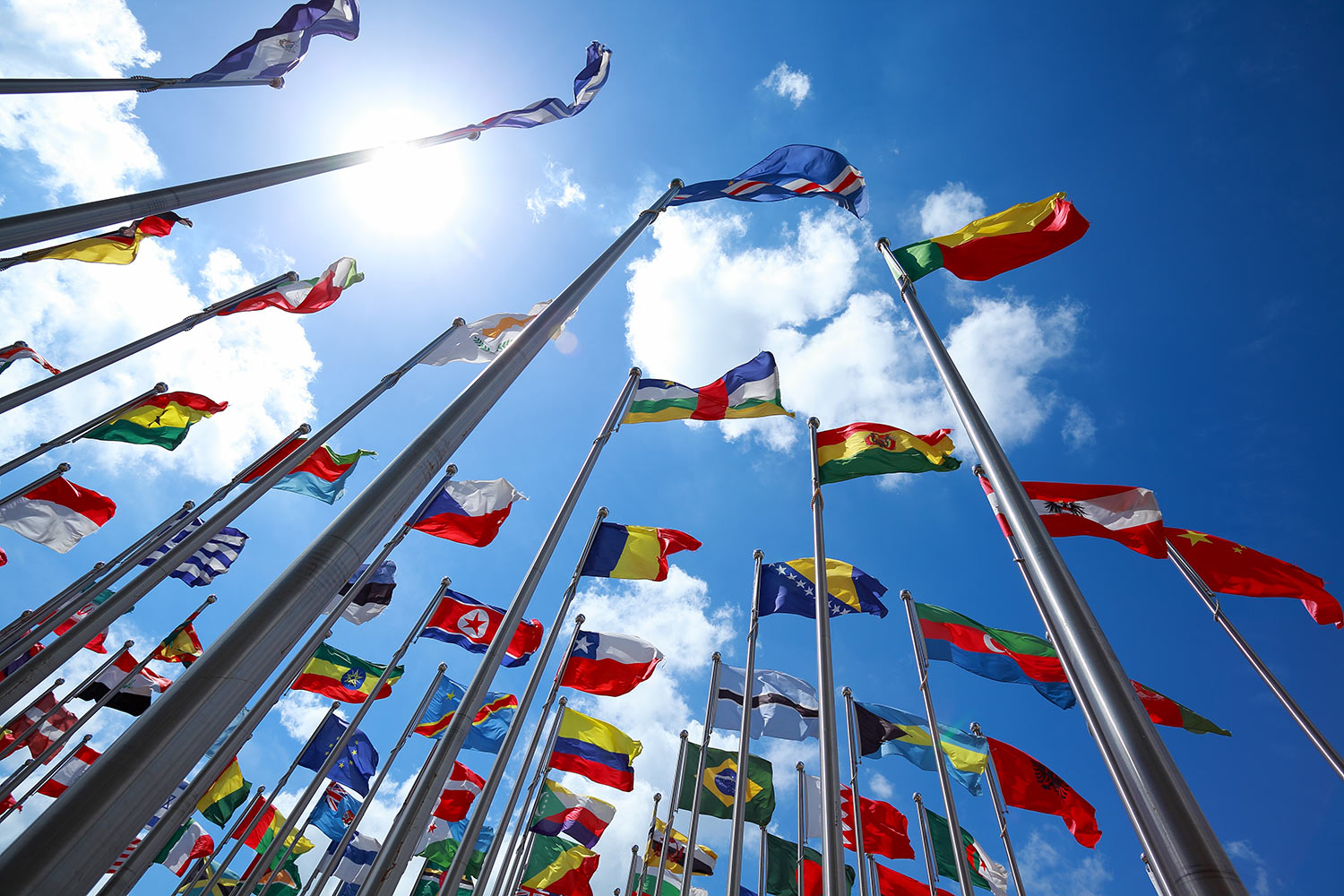10 messages to the UN 2023 Water Conference
Next year’s United Nations conference on water comes at a critical time – the growing global water crisis must be urgently addressed to achieve the 2030 Agenda for Sustainable Development. SIWI is taking active part in the preparations for the conference and has presented ten ideas for more effective water policies.
The United Nations 2023 Water Conference will take place 22-24 March in New York, co-hosted by Tajikistan and the Netherlands. The aim is to speed up work to achieve the Sustainable Development Goals through water, with a special focus on the specific water goal SDG 6. Currently the world is not on track to meet the goals by 2030 which is what the international community committed to when the 2030 Agenda was launched back in 2015.
Between 24-25 October, SIWI’s Josh Newton is participating in the official stakeholder and preparation meetings ahead of the United Conference and he hopes that more countries understand the crucial role of water for human development: “These preparatory meetings organized by the United Nations President of the General Assembly are of vital importance to the success of the UN 2023 Water Conference. They provide not only a platform to further awareness about the conference and its aspirations, both to Member States and stakeholders, but also raise the ambition of the commitments that are to be part of the Water Action Agenda. ”
As part of the stakeholder dialogue ahead of the Water Conference, SIWI has presented ten messages that should shape the conversations before, during and after the event. With our broad perspective on water, we can feed into all themes that are likely to be discussed at the conference:
Water for Health
- Don’t forget access to WASH in public spaces. To achieve SDG 6, countries need to focus more on access to water, sanitation, and hygiene services in public places like schools, hospitals and institutions. This is a way to improve the quality of education and health care and is especially important for disadvantaged groups.(Find out more about Sanitation in public spaces)
Water for Development
- Make water governance more inclusive. Looking beyond instrumental values, countries can also consider holistic approaches like the rights of rivers, citizen decision-making, the recognition of obligations to water, and measures that increase the influence of local communities. (Read a case study on Indigenous peoples and water).
Water for Climate, Resilience, and Environment
- Climate change mitigation cannot succeed without water. By improving how water is managed, countries can find powerful tools to make their climate strategies more effective. Freshwater perspectives need to be mainstreamed into all climate mitigation planning and action. (Read the Executive Summary of the Water in Climate mitigation report)
- Manage water holistically from source-to-sea. Climate risks and the degradation of nature are two of the most important drivers of poverty, but the situation can be alleviated through improved management of terrestrial, freshwater, coastal, and marine systems. National governments must incentivize and implement this kind of holistic source-to-sea management (Find out more about the Source-to-Sea programme).
- Recognize Indigenous Peoples’ territories and their role in water governance. By doing so Indigenous Peoples’ knowledge, practices and institutions can help develop sustainable and culturally appropriate water services and conservation and management systems, with a view to promoting pluralistic approaches incorporating different worldviews (Find out more about how we work with Indigenous people).
- Cities must be at the forefront of climate action. Few cities are sufficiently prepared to face the impacts of global warming but there are good examples that deserve to be shared. Cities can, for example, make room for nature so that they are more prepared for floods and drought and work systematically to climate-proof WASH services. Cities need more practical tools and best-practice examples (Find out more about the City Water Resilience Approach).
- Water must be at the core of all countries’ national climate policies. There are many powerful water-related climate solutions that work with nature to provide multiple benefits, including poverty reduction, greenhouse gas sequestration and protection from the impacts of global warming. (Find out more about the WASH Bottleneck Analysis Tool)
Water for Cooperation
- Water can be a powerful catalyst for peace and collaboration. Climate change is a risk multiplier, but it can also foster a culture of cooperation around shared water resources. To create a virtuous cycle, it is important to overcome today’s fragmented governance structures. At national and regional levels, resources must be provided to support coordination between different sectors and tiers of governments, and cooperation across geographic scales. (Find out more about the Source-to-Sea Platform).
Water Action Decade
- Institutional and policy fragmentation must be overcome. The lack of coordinated governance around water for domestic needs and water resources management and allocation, poses one of the greatest challenges to protecting and accelerating progress in SDG 6. Global communities need to overcome the silos between water resources management and WASH, and countries should shift to integrated and holistic approaches in addressing the water crisis and advancing global agendas. (Find out more on how we work in improving water governance)
- Make inclusion count. To achieve genuine change, all voices and perspectives are needed. This is not just a “nice-to-have” but a fundamental aspect of driving transformations. In light of this, it is essential to develop indicators on youth inclusion and local knowledge as well as for example gender and youth perspectives so that it is possible to monitor progress and ensure accountability.
International Policy
How can water be used to address the world’s major challenges such as the climate crisis, the protection of our planet and poverty? SIWI’s International Policy team helps global leaders understand the importance of water and its potential to unlock powerful solutions.
Learn more








